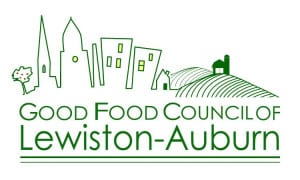Award Categories
Nominees for Youth Food Charter Champion Awards will be evaluated based on how much they “lead by example” through action in relation to one, or more, of the five Award Categories from the LA Community Food Charter which are described in detail below!
- Food Security
- Local & Sustainable Agriculture
- Leadership
- Food Policy
- Working Landscapes & Community Infrastructure
 AWARD CATEGORY #1: FOOD SECURITY
AWARD CATEGORY #1: FOOD SECURITY
“Strive for every member of our community to have a food secure future”
The nominee(s) that leads by example in the FOOD SECURITY category has made a difference in one (or more!) of the following ways:
- Taking action in their community to help local families facing hunger and/or
- Learning about what causes hunger, and/or
- Inspiring their peers or wider community to address hunger
Examples of this work could include:
- Describe how and why the nominee(s) organized a fundraiser for, and/or volunteered their time at a local food pantry, soup kitchen, food bank, community garden, school garden, etc.
- Describe how the nominee(s) spread greater awareness of the root causes of hunger through a research project and/or public presentation (video, article, event, artwork, etc.)
AWARD CATEGORY #2: LOCAL & SUSTAINABLE AGRICULTURE
“Consider local and sustainable agriculture when making food decisions for ourselves and our families.”
The nominee(s) that leads by example in the LOCAL & SUSTAINABLE AGRICULTURE category has made a difference in one (or more!) of the following ways:
- Taking action (big or small) to support local farms and/or practices that help keep the land safe and useable for many generations to come, and/or
- Learning about the many benefits to humans, the planet, and local economies of eating locally- and sustainably- produced food, and/or
- Learning about the importance of farmworkers and local farms have enough income and business to thrive, and/or
- Inspiring their family, peers, or wider community to support local and/or sustainable agriculture
Examples of this work could include:
- Describe how the nominee(s) inspired their family to shop weekly at a local farmers market (perhaps by utilizing Maine Harvest Bucks) or purchase a CSA share from a local farm.
- Describe what the nominee(s) learned about the importance of local and sustainable agriculture while volunteering to support, or working at: a local farm, non-profit, land trust, cooperative extension, environmental organization, farmworker or farm advocacy organization, etc.
- Describe how the nominee(s) spread greater awareness of the value of local food and/or sustainable agriculture through a research project and/or public presentation (video, article, event, artwork, etc.).
AWARD CATEGORY #3: LEADERSHIP
“Enable leadership by all members of our community by sharing knowledge of good food and related resources and empowering individuals to take action.”
The nominee(s) that leads by example in the LEADERSHIP category has made a difference in one (or more!) of the following ways:
- Learning about ‘good food’ and why it’s important;
- Taking action locally to improve our local food system (from farm-to-fork) in any way;
- Inspiring their family, peers, and/or wider community to address any healthy food system related issue.
Examples of this work could include:
- Describe how the nominee(s) participated in a community planning process related to local foods, such as the 2019 Local Foods Local Places Workshops, to help shape the food vision and future for their community.
- Describe how the nominee(s) advocated successfully at their home, school, or community group to start composting food waste.
- Describe how the nominee(s) started a club at their school to encourage participation in the school garden.
- Describe how the nominee(s) food was going to waste in their classroom and asked to save it for others.
AWARD CATEGORY #4: GOOD FOOD POLICY
“Elevate good food policy by engaging and informing our local officials and leaders, lifting up examples of what works in other places, and using the definition of ‘good food’ to evaluate relevant legislation and policy decisions.”
NOTE: Policy – or guiding principles for action – is not limited to government. Any organization or business can have policies that impact food, including schools, clubs, faith-based groups, and nonprofits.
The nominee(s) that leads by example in the GOOD FOOD POLICY category has made a difference in one (or more!) of the following ways:
- Learning how policy at any level (community group, school, town, city, or state government, etc.) is a powerful tool to create positive change, and/or
- Taking action to try and create more good food policy at any level and/or
- Inspiring their family, peers, and/or wider community to try and create more good food policy at any level
Examples of this work could include:
- Describe how the nominee(s) was vocal within their school to start a school garden.
- Describe how the nominee(s) was vocal to their school committee or school board in favor of good food options for all students.
- Describe how the nominee(s) supported greater awareness of good food policy through a research project and/or public presentation (video, article, event, artwork, etc.).
AWARD CATEGORY #5: WORKING LANDSCAPES & COMMUNITY INFRASTRUCTURE
“Support the preservation of working landscapes and development of community infrastructure that enhances production of and access to good food.”
The nominee(s) that leads by example in the WORKING LANDSCAPES & COMMUNITY INFRASTRUCTURE category has made a difference in one (or more!) of the following ways:
- Learning that without local working landscapes (ie. farms, forestry, and fisheries), there is no local food, and/or
- Learning that without community infrastructure (ie. washing, chopping, and packaging facilities; meat processing facilities; local food retail outlets, trucks for distribution, cold/dry food storage facilities, etc.), local food cannot be accessed by most people; and/or
- Taking action to support the saving of farmland, or public investment in community infrastructure
- Inspiring their family, peers, and/or wider community to advocate for the protection of working landscapes and/or public investment in community infrastructure
Examples of this work could include:
- Describe how the nominee(s) fundraised, or was vocal about the importance of protection of land for farming.
- Describe how the nominee(s) supported greater awareness of the value of community infrastructure (such as community food centers, community kitchens, food hubs, school kitchen, etc.) through a research project and/or public presentation (video, article, event, artwork, etc.).
- Describe how the nominee(s) supported investment in school composting infrastructure by advocating to partner with a local compost business to ensure food waste enriches soil instead of taking up space in a public landfill.
To learn more about the Food Charter principles, and why they are important, visit the “Learn” page of the LA Food Charter website.
Back to Awards homepage.





